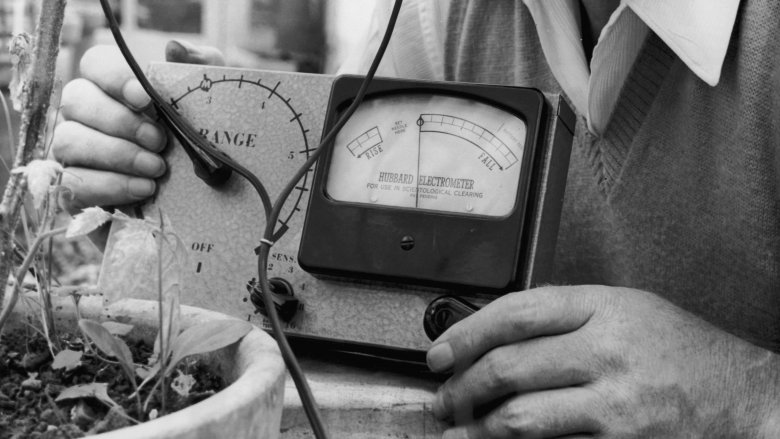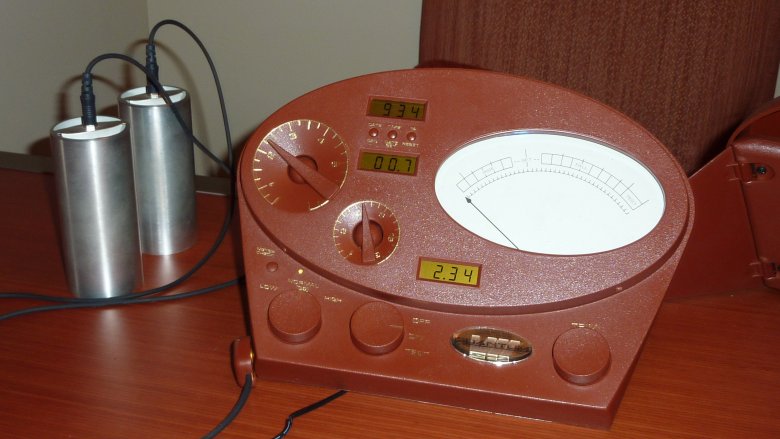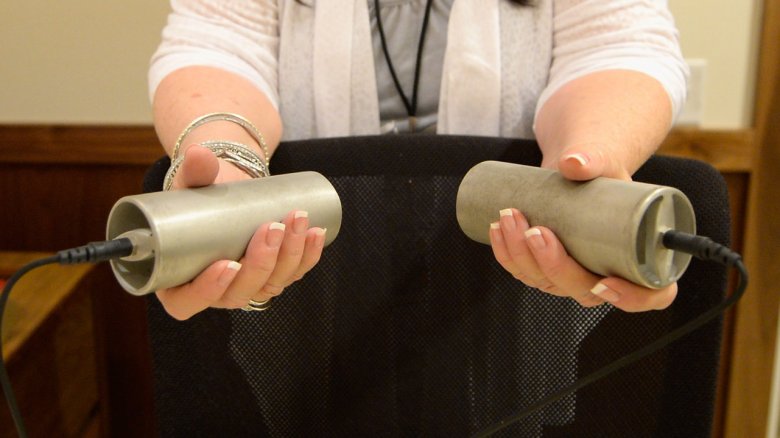The Truth About The Scientology E-Meter
Scientology, like the tombs of the pharaohs of old, is an enigmatic and labyrinthine layer cake of intrigue from which only the most lithe and sinewy escape. Stories about the inner workings of the church manage to leak out from time to time, and somehow the added details only raise more questions. Billion-year contracts and sweatshop wages and celebrity endorsements of the route to true enlightenment only leave the outside observer more curious than when they started reading the Gordian knot of articles on the subject, asking again and again, as if trying to fill an endless void with one guttural syllable, "Huh?"
With so much to unpack, it might be wise to start in the same place that many soon-to-be Scientologists do: with an E-Meter.
The E-Meter, Scientology, and YOU!
The E-Meter, or Electropsychometer, is a lot of things to a lot of people. According to the official Scientology website, it's a "religious artifact" used to measure "psyche, the human soul, spirit, or mind." According to Carnegie Mellon University, it's basically an off-brand lie detector. Originally created by a chiropractor named Volney Mathison and used in the early days of Scientology, the OG design fell out of favor with the Church when Mathison decided against handing over the patent to his creation. A few years later, one of L. Ron Hubbard's followers made some adjustments to the first version, had it patented under Hubbard's name, and the E-Meter readings became an essential part of the "auditing" process.
The E-Meter and auditing in Scientology
During an auditing session, a person (referred to as a "preclear" by the Church) makes physical contact with a pair of electrodes and talks through different images and emotions from their past. In theory, the E-Meter measures the spiritual response that a person undergoes while thinking these thoughts. In scientific, objective practice, it gives a reading of the electrical conductivity of a person's skin.
If this seems harsh, it might be worth mentioning that the FDA had some harsh words about the Church's early claims regarding the E-Meter's capabilities, which ended with a court order that all E-Meters be labeled with a warning stating that, among other things, it was "not medically or scientifically capable of improving the health or bodily functions of anyone."


